Australian singer-songwriter Grace Shaw floats between cloud rap and dream pop with the tossed-off affectations of a weary internet princess.
In 2015, a Brisbane teenager named Grace Shaw uploaded a song titled “Suicide Blonde” to SoundCloud. Shaw’s debut single as Mallrat offered more intrigue than the ordinary lo-fi ditty: The track addresses a woman who once appeared in the music video for INXS’ song of the same name and now struggles with depression, addiction, and an eating disorder. Lyrics name-dropping Cameron Diaz and the late INXS singer Michael Hutchence were exacting and empathetic. A year later, Shaw released her debut EP, Uninvited, a skittering, upbeat collection of songs about suburban ennui and feeling like an outcast. Massive streaming success, buzzy singles, and gigs opening for Post Malone and Maggie Rogers followed. After three EPs, the now 23-year-old Shaw’s long-awaited debut, Butterfly Blue, establishes her as an artist with ambitions bigger than the bedroom-pop genre that once defined her.
Butterfly Blue is named for dueling sensations: the stomach-churning excitement of new romance and the heartbreak that so often follows. Across 11 songs, Mallrat explores desire and distance: Her songwriting is preoccupied with lovers who remain just out of reach and stars that momentarily align only to burn out. “I was in love, it’s not something you choose,” she sings on the title track. Like many young artists raised online, Shaw has an omnivore’s musical palette, citing Three 6 Mafia, SOPHIE, and Yung Lean as influences; as a child, she was captivated by Imogen Heap’s layered vocals on “Hide and Seek,” as heard on the soundtrack to The O.C. The songs on Butterfly Blue are largely rooted in the realms of cloud rap and dream pop, with the tossed-off affectations of a weary internet princess. As if to underline the influence, a faithful cover of Mazzy Star’s gauzy hit “Fade Into You” appears as a bonus track on physical editions.
For her full-length debut, Shaw teamed up with a ragtag crew of producers including Jam City, Konstantin Kersting, and Tommy English. The SoundCloud-y “Surprise Me” does nothing of the sort until everyone’s favorite shit-stirrer, Azealia Banks, appears for a truly jaw-dropping verse: “I squirted on him like a squid, now he inky-faced/He said my pussy tighter than Nicole Kidman face.” Banks’ cocksure burst of energy momentarily transforms Butterfly Blue into an entirely different record. If Mallrat briefly comes off like a guest on her own song, she regains control with the glitchy production and hypnotic chorus of album highlight “Your Love.” It concludes with a diced-up sample of Memphis rapper Gangsta Pat’s 1995 track “Killa (Part 2)”: “Hidin’ in the bushes with a mask and a pistol grip…I got a bullet with yo’ name on the fuckin’ tip.” The menacing image adds some much-needed sharpness to Mallrat’s hazy stories of romantic peril.
Mallrat has said she aspires to make music that sounds like “angelic children’s choirs and monster trucks at the same time” and Butterfly Blue is at its best when it squarely rides that line. The gothic fairytale “Heart Guitar” crackles with electro-pop sparks as Mallrat laments a lost love: “How can you give me butterflies then tie them up in knots?” she murmurs wistfully. “Teeth” bundles vague concepts of sex and power into an omnipresent specter with the distant pout of Sky Ferreira circa Night Time, My Time. More compelling is Alice Ivy’s production, which dissolves Mallrat’s vocals into a blown-out blast of reverb. The acoustic empowerment anthem “I’m Not My Body, It’s Mine” takes a softer approach, with a background loop of hushed, wordless harmonies that would make Brian Wilson proud.
On the warm and twinkly “Rockstar,” she fantasizes about marrying a famous musician who will help her forget all about an ex. The twist, however, is that in this scenario, Mallrat is a Grammy-winning superstar in her own right, and she can rely on herself: “Don’t think you’re slick for cashing in on my magic.” Tracks like “Rockstar” and “I’m Not My Body, It’s Mine” succeed because Mallrat’s strongest songwriting prioritizes specificity over impressions. It’s this close observation that allowed early tracks like “Suicide Blonde” to stand out, but too frequently on Butterfly Blue, Mallrat gets lost in loose daydreams. When she latches onto particulars, she soars.



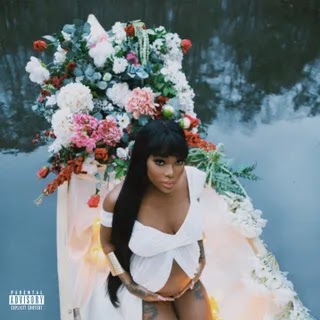
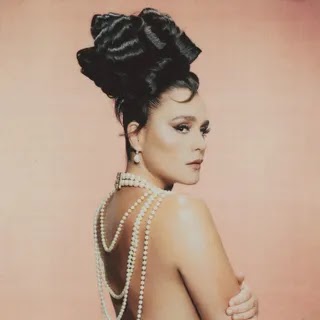


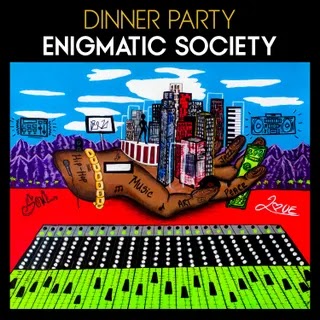
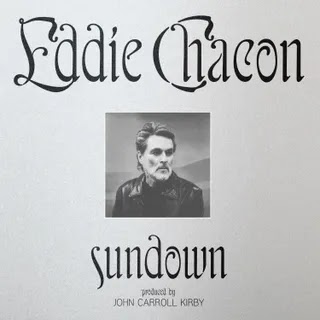
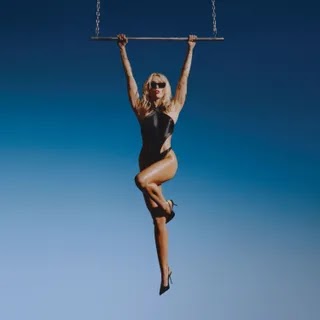






0 comments:
Post a Comment